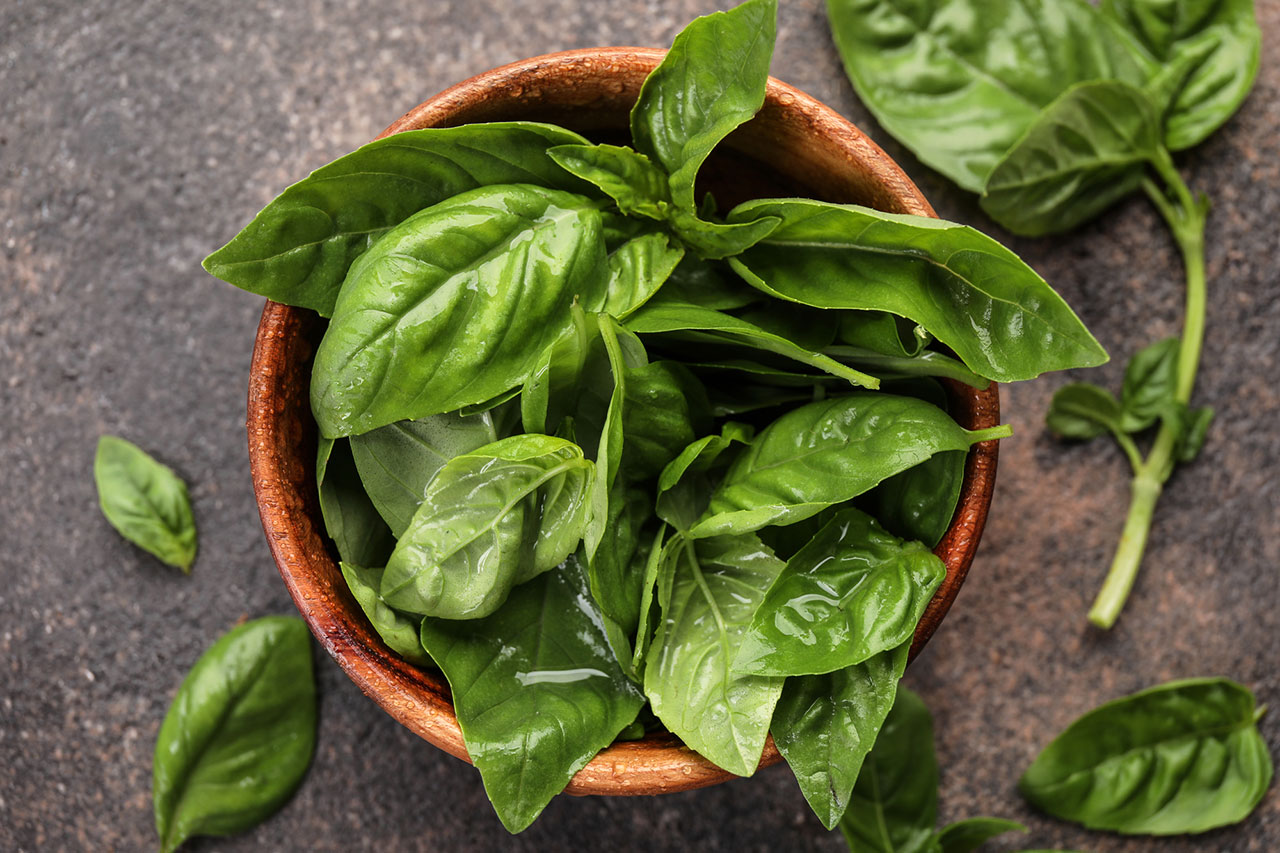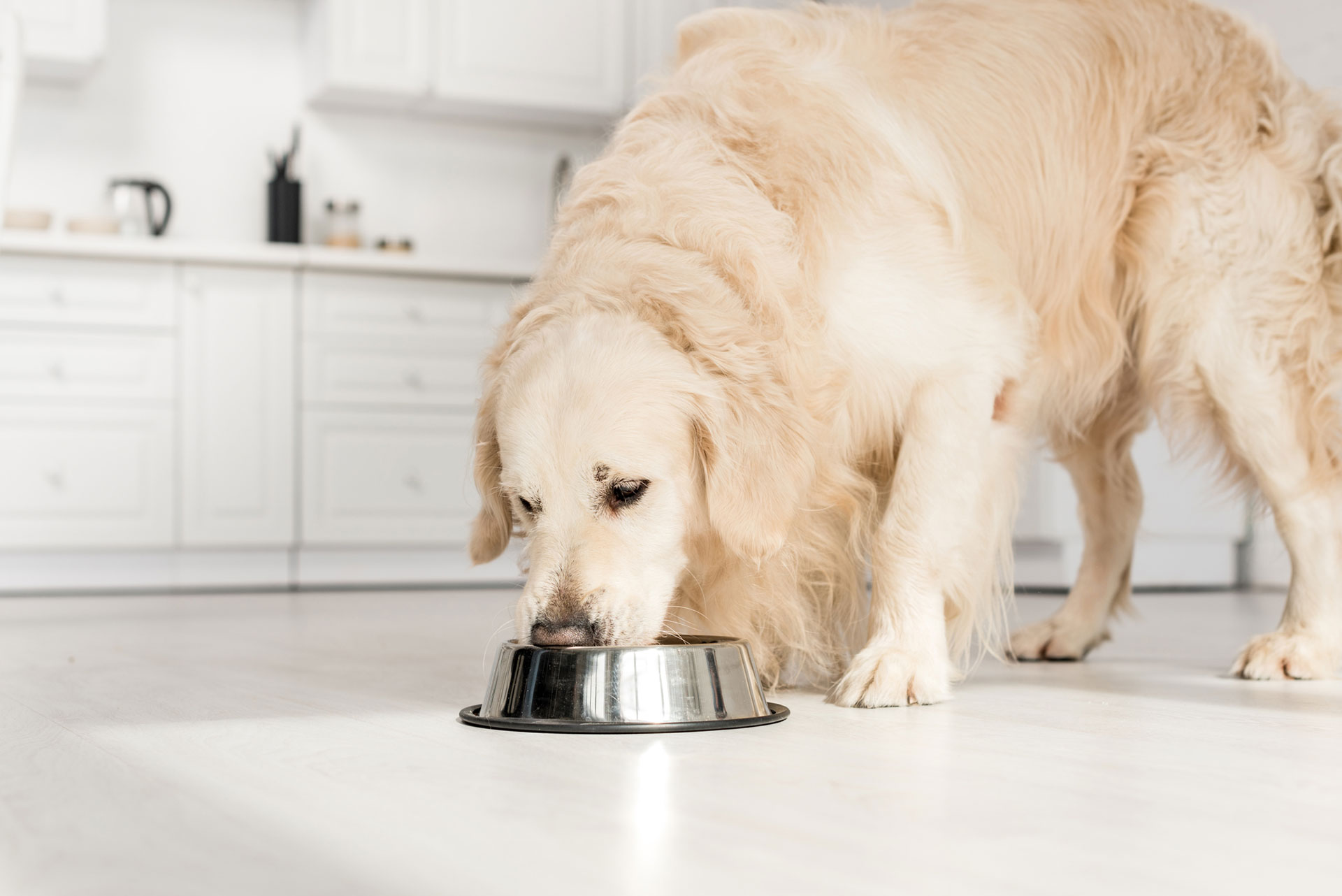Can Dogs Eat Basil?
What Is Basil?
Basil is a leafy green herb often used in Italian, Thai and Vietnamese cuisine. It has a strong, pungent flavor and aroma that is perfect for adding to dishes like pesto, pasta, and soup. Basil is also high in antioxidants and vitamins A and C, making it a healthy addition to any diet.
What Advantages Does Basil Provide For a Dog’s Health?
Basil is a fantastic herb to include in your dog’s diet since it has many great health benefits, such as promoting healthy digestion, lowering inflammation, and assisting with blood sugar regulation. Basil is also a rich source of antioxidants, which can help protect your dog from disease. Here are ten health benefits of basil for dogs:
- Aids in digestion: Basil is a carminative herb that helps prevent gas, bloat and other digestive problems. It also stimulates the production of digestive juices, making it easier for your dog to break down and absorb nutrients from their food.
- Reduces inflammation: Basil contains an antioxidant called eugenol and has anti-inflammatory properties. This might lessen the discomfort and swelling brought on by ailments like arthritis.
- Helps to control blood sugar levels: Basil contains compounds that help to regulate blood sugar levels, making it an excellent herb for dogs with diabetes.
- Rich in antioxidants: As well as eugenol, basil has high levels of antioxidants, including vitamin A and vitamin C. These nutrients help to protect your dog from disease and keep its immune system healthy.
- Promotes healthy skin and coat: Basil is a good source of omega-3 fatty acids essential for healthy skin and coat. It also helps to reduce itching and irritation.
- Reduces stress: Basil has calming properties that can help to reduce stress and anxiety. This can be helpful for dogs who get nervous in loud environments or during thunderstorms.
- Helps with motion sickness: If your dog gets car sick, small portions of basil can help to settle their stomach and prevent nausea.
- Aids in weight loss: Basil is a low-calorie herb that can help to increase feelings of fullness and reduce hunger cravings. For dogs attempting to lose weight, this can be useful.
- Prevents bad breath: Basil helps to fight bacteria in the mouth, preventing bad breath.
- Soothes insect bites: Raw basil has soothing properties that can help to reduce the itchiness and irritation of insect bites. It can also help to prevent infections.
Due to its numerous essential nutrients, basil is a fantastic herb to include in your dog’s diet. From aiding digestion to reducing inflammation, basil can help improve your dog’s health. In order to improve your dog’s health, think about giving them small quantities of basil in their meal.
Risks Associated with Feeding Your Dog Basil
While basil is a healthy human food, it can be dangerous for dogs. Here are ten risks associated with feeding your dog basil and why you should avoid giving too much of it to your pet.
- Basil Contains Essential Oils That Can Be Toxic To Dogs
Basil essential oils contain compounds that can cause negative effects to dogs if ingested in large amounts. Although there are many medical benefits to these oils, and they are used in aromatherapy, dogs may have stomach upset, vomiting, and diarrhea as a result of these oils. - Basil Can Cause Allergic Reactions In Dogs
Some dogs can have allergic reaction to basil. If you notice your dog scratching excessively or having trouble breathing after eating small amount of basil, these could be signs of an allergy. - Basil Can Irritate A Dog’s Stomach
Basil can irritate a dog’s stomach, causing vomiting and diarrhea. If your furry friend ingests too much basil, it can lead to an upset stomach. To avoid this, start by giving your dog small amounts of basil and slowly increase the amount over time. - Basil Can Contain harmful bacteria
Like all plants, different types of basil basil can contain harmful bacteria that can make your dog sick. To reduce the risk of infection, wash all basil leaves thoroughly before feeding them to your dog. - Basil Can Interact With Certain Medications
Basil can interact with certain medications, such as those used to treat anxiety or seizures. If your dog takes any medication, talk to your veterinarian before giving them this new food. - Basil Can Cause Gastrointestinal Obstruction
Basil leaves are tough and can cause gastrointestinal obstruction if ingested by dogs. If your dog eats a large amount of basil, it can lead to an obstruction in the intestines. Symptoms of gastrointestinal obstruction include vomiting, diarrhea, abdominal pain, and bloating. - Basil Can Be Toxic To Pregnant Dogs
Basil can be toxic to pregnant dogs and should be avoided. In addition, some essential oils in basil can stimulate contractions, leading to preterm labor. So if you have a pregnant dog, avoid using basil essential oils and keep fresh basil out of your pet’s reach. - Basil Can Lower Blood Sugar Levels In Dogs
Bit of basil can lower blood sugar levels in dogs, so if your dog has diabetes, avoid giving them this herb. - Some Dogs May Be More Sensitive To Basil Than Others
Some of our canine friends may be more sensitive to the effects of basil than others. Give your dog a modest dose of basil to begin with, and watch for any negative reactions if you’re unsure of how they’ll respond. - Basil Is Not Recommended For Dogs With Kidney Disease
Basil is not recommended for dogs with kidney disease because it can increase oxalate levels in the urine. This can lead to kidney stones and other health problems.
Basil can be harmful to dogs if ingested in large quantities and cause allergic reactions in some dogs. It is also important to note that basil can interact with certain medications and can be toxic to pregnant dogs. Start with giving your dog a little amount of basil if you’re unsure of how they’ll react to it, and keep an eye out for any adverse effects.
How Much Basil Should You Give Your Dog, & How Often?
Basil is a popular cooking herb and has many benefits for dogs. It can help settle their stomachs, improve their digestion, and protect them from fleas and ticks. Antioxidants, vitamins A and C, iron, and calcium are all abundant in basil.
You can give your dog fresh basil leaves or dried basil. If you’re using fresh leaves, you can give them to your dog whole or chop them up first. Dried basil should be crumbled or ground before giving it to your dog.
The amount of basil you give your dog depends on their size. Start with one leaf or a pinch of dried basil for small dogs. Then, you can give them 1-2 leaves or a teaspoon of dried basil for medium and large dogs.
Dogs can consume basil in moderation but avoid giving them too much. An upset stomach or diarrhea may result from eating too much basil. If you’re unsure of how your dog will respond to basil, give them a little at first and monitor their behavior.
Alternative Herbs You Can Feed to Your Dog Instead of Basil
Many different types of herbs can be fed to your dog in addition to basil. These herbs provide numerous health benefits for dogs and help to keep them healthy and active. Some of these herbs include mint, lavender, rosemary, and thyme. So the next time you’re at the grocery store, pick up some of these alternative herbs and add them to your dog’s diet!
- Mint: Mint is a great herb to add to your dog’s diet as it can help to soothe their stomach and digestion. It can keep your dog’s coat healthy and glossy and is a wonderful source of antioxidants.
- Lavender: Lavender is another herb that can benefit dogs, particularly those with anxiety or stress. Your dog may feel more comfortable and relaxed, thanks to the soothing aroma of lavender.
- Rosemary: Rosemary is a great herb for dogs as it can help to improve their circulation and respiratory health. Additionally, it is a wonderful source of vitamins and minerals, which can support the health and strength of your dog.
- Thyme: Thyme is another herb beneficial for dogs, particularly those with respiratory issues. It can help clear your dog’s airways and make breathing easier. Thyme is also a good source of antioxidants and can help to keep your dog’s immune system functioning properly.
- Oregano: Oregano is yet another herb that can benefit dogs. It is a natural antibiotic and can help to fight off infection. Oregano is also a good source of vitamins and minerals, which can help to keep your dog healthy.
Dogs are not just pets. They are members of the family. And like any other family member, they need to be taken care of and given the proper nutrients to stay healthy. That’s why it is important to add alternative herbs to your dog’s diet in addition to basil. These herbs provide numerous health benefits for dogs and help to keep them healthy and active. So the next time you’re at the grocery store, pick up some of these alternative herbs and add them to your dog’s diet!
So, Can dogs eat basil? The answer is yes, and they can. Basil is a herb often used in cooking and has many health benefits for humans. It also has some benefits for dogs. While giving your dog basil is unnecessary, if you have some lying around, it won’t hurt them to eat it. Ensure you don’t give them too much, as too much of anything can be bad for them. Thanks for reading!



